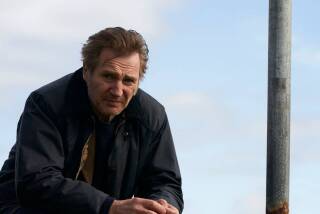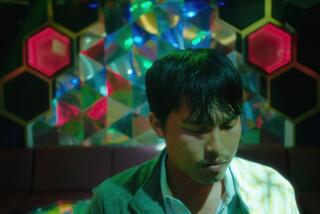Movie review: ‘There Be Dragons’
“There Be Dragons,” most of which is set during the Spanish Civil War of the late 1930s, is supposed to be about the intersecting lives of a saint and a sinner. But it is a third man, a revolutionary, who nearly steals the show. Which might have been all right if writer-director Roland Joffé hadn’t been so conflicted about whose story he wants to tell. But indecision can be deadly, and it proves to be here.
The British director has done very well in the past with sprawling epic tales of religion (1986’s “The Mission”) and wars (1984’s “The Killing Fields”), both of which earned him Oscar nominations. But he’s stumbled badly in the years since, from the literary failure of “The Scarlet Letter” in ’95 to the lowbrow horror of 2007’s “Captivity.” This project seemed promising — a portrait of Josemaría Escrivá (Charlie Cox), the Spanish priest who would found the controversial Catholic group Opus Dei. Joffé threw out the script he was handed and expanded the story, adding a fictional sinner in Manolo (Wes Bentley), who begins as a boyhood friend of Josemaría and grows into an adversary.
The film is at its best in the heroics forged by the Spanish conflict — it’s where you most feel the echoes of Joffé’s past successes. Working with cinematographer Gabriel Beristain, the filmmaker captures the beauty amid the brutality of war without forgetting that it is the individual stories of those on the ground that matter.
Josemaría’s troubles start in the streets of Madrid — priests are being shot on sight and he has to decide whether to face death or go into hiding. Cox (“Stardust”) is quietly affecting as a struggling priest. If anything, he is so gentle in portraying this servant of the poor that it is difficult to understand the roots of, much less the reason for, the “corporal mortification” — a self-inflicted cat-o’-nine-tails whipping here — that in the public imagination often defines Opus Dei (some members of which were on the producing team).
Things improve when the focus shifts to those in the trenches. Manolo throws in his lot with a charismatic revolutionary, Oriol (Rodrigo Santoro), and soon falls under the spell of a beautiful Hungarian freedom fighter (Olga Kurylenko) who’s also joined the cause. There are intrigues, love among the ruins, scorned affections, political and personal betrayals and gritty battle scenes framed by the countryside and cities of Spain washed in sepia tones.
It is the revolutionary as played by Santoro who burns up the screen. The much-respected Brazilian actor — memorable as the Persian king on the wrong side of Gerard Butler in “300” — makes it easy to envision a different, better, film. But the fight for center stage is between Josemaría and Manolo, and, in an extremely clumsy contrivance, Manolo’s estranged son (Dougray Scott). Suffice it to say, it doesn’t work.
The film’s title, “There Be Dragons,” is lifted from the way ancient maps warned of dangers to be found within uncharted territory. Joffé should have paid heed.
More to Read
The biggest entertainment stories
Get our big stories about Hollywood, film, television, music, arts, culture and more right in your inbox as soon as they publish.
You may occasionally receive promotional content from the Los Angeles Times.







